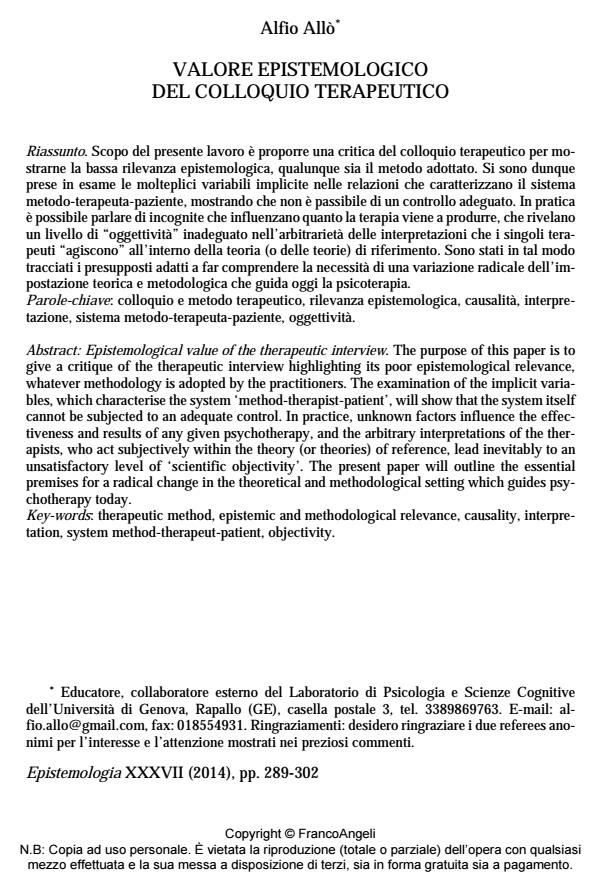Epistemological value of the therapeutic interview.
Journal title EPISTEMOLOGIA
Author/s Alfio Allò
Publishing Year 2015 Issue 2014/2
Language Italian Pages 14 P. 289-302 File size 58 KB
DOI 10.3280/EPIS2014-002008
DOI is like a bar code for intellectual property: to have more infomation
click here
Below, you can see the article first page
If you want to buy this article in PDF format, you can do it, following the instructions to buy download credits

FrancoAngeli is member of Publishers International Linking Association, Inc (PILA), a not-for-profit association which run the CrossRef service enabling links to and from online scholarly content.
The purpose of this paper is to give a critique of the therapeutic interview highlighting its poor epistemological relevance, whatever methodology is adopted by the practitioners. The examination of the implicit variables, which characterise the system ‘method-therapist-patient’, will show that the system itself cannot be subjected to an adequate control. In practice, unknown factors influence the effectiveness and results of any given psychotherapy, and the arbitrary interpretations of the therapists, who act subjectively within the theory (or theories) of reference, lead inevitably to an unsatisfactory level of ‘scientific objectivity’. The present paper will outline the essential premises for a radical change in the theoretical and methodological setting which guides psychotherapy today.
Keywords: Therapeutic method, epistemic and methodological relevance, causality, interpretation, system method-therapeut-patient, objectivity.
- Il processo diagnostico e relazionale in psichiatria. Validità epistemologica tra normalità e patologia Alfio Allò, in Ricerca Psicoanalitica /2021
DOI: 10.4081/rp.2021.277
Alfio Allò, Valore epistemologico del colloquio terapeutico in "EPISTEMOLOGIA" 2/2014, pp 289-302, DOI: 10.3280/EPIS2014-002008